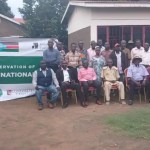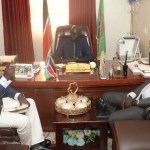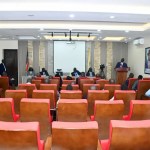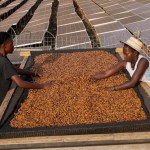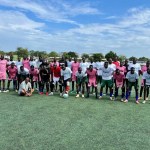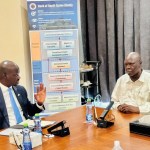(JUBA) – Lawmakers in South Sudan’s Transitional National Legislative Assembly (TNLA) have expressed concern that the United Nations arms embargo is leaving the country militarily weak and exposed to threats from neighbouring states.
The debate came after renewed clashes along the borders, including a recent incident in Kajo-Keji County, Central Equatoria, where several South Sudan People’s Defence Forces (SSPDF) soldiers were killed during a dispute with Ugandan forces.
During a parliamentary session on Wednesday focused on South Sudan’s territorial disputes, Bona Deng Lawrence, a legislator from the National Agenda party representing Aweil South County in Northern Bahr el Ghazal State, said the embargo has weakened the army by preventing it from acquiring ammunition.
He argued that the ability to defend sovereignty depends not only on laws but also on military strength.
“Sovereignty is protected by power as well as by law,” he said. “History shows that strong military powers such as the United States, Russia, and China are rarely invaded.”
Deng cited the conflict between Russia and Ukraine as an example, saying that powerful countries are respected and avoided in conflicts. He added that South Sudan’s lack of military capability encourages neighbours to provoke the country.
“I am not calling for war,” he explained. “But when a country has military capacity, it is respected. This is why we must continue to demand the lifting of the arms embargo, so that our army is capable and respected by neighbours.”
Victor Omuho Ohide, an MP from Eastern Equatoria State, also raised concerns about the border dispute with Kenya. He said the original boundary lay at the river in Lokichogio but had since shifted to Nadapal due to what he described as government silence.
“Our land has been moved further into our territory,” he said. “Part of Moyosukun land is now under Uganda, where tanks have been stationed. Sometimes military flexibility is needed to protect our borders.”
South Sudan has faced multiple unresolved border disputes since independence in 2011, including with Sudan over Abyei, with Kenya over the Ilemi Triangle, with Uganda in Kajo-Keji, and with Ethiopia in Gambella.
Lawmakers called for the ministries of defence, foreign affairs, and the national border commission to appear before parliament and explain how the government intends to address the disputes.
Civil society leaders, however, urged restraint. Edmund Yakani, Executive Director of the Community Empowerment for Progress Organization (CEPO), warned against escalation following the Kajo-Keji clashes.
“Our border communities should not be treated as war zones,” he said. “The safety of civilians must come first, and both governments should resolve disputes peacefully.”










